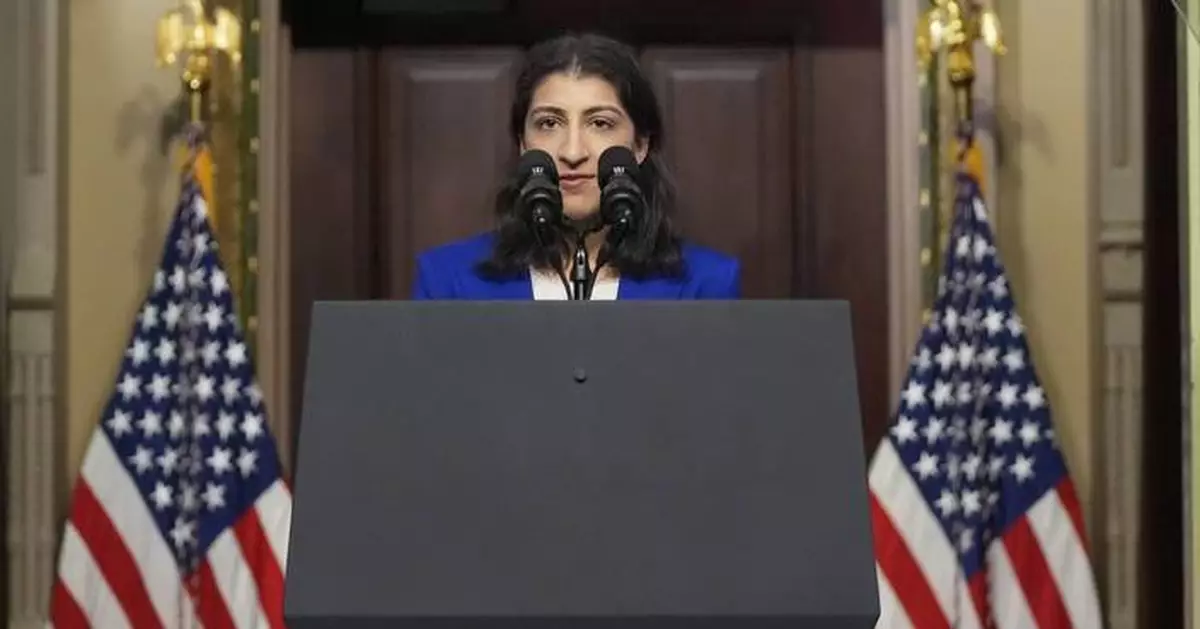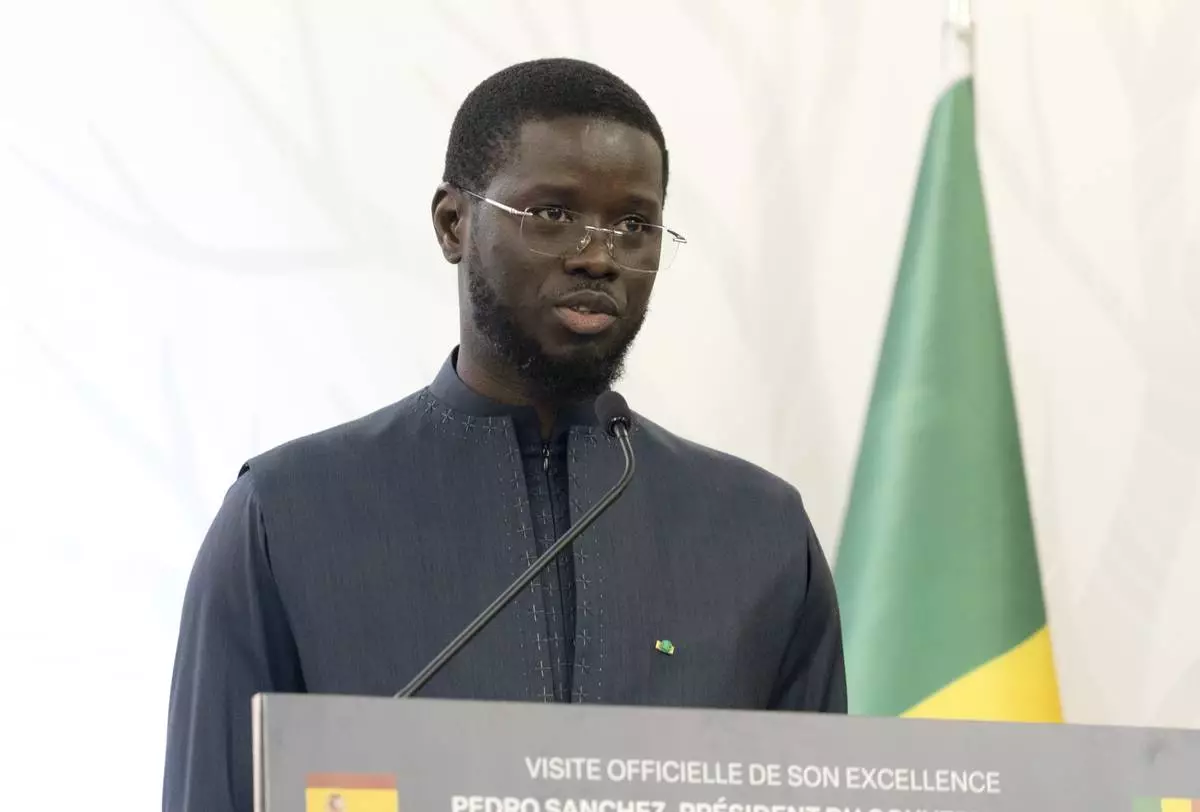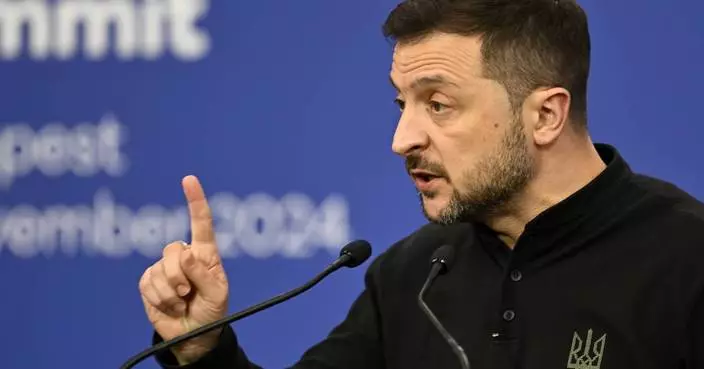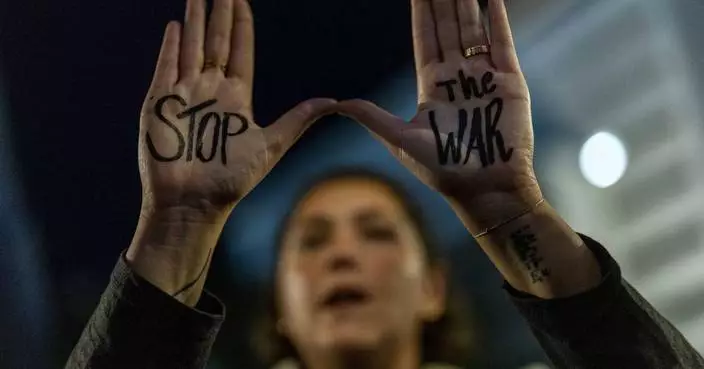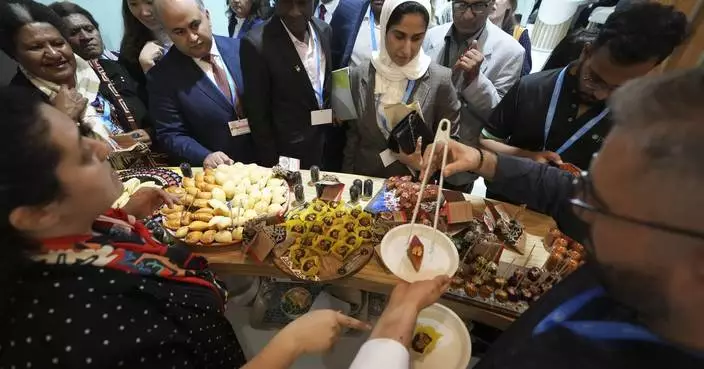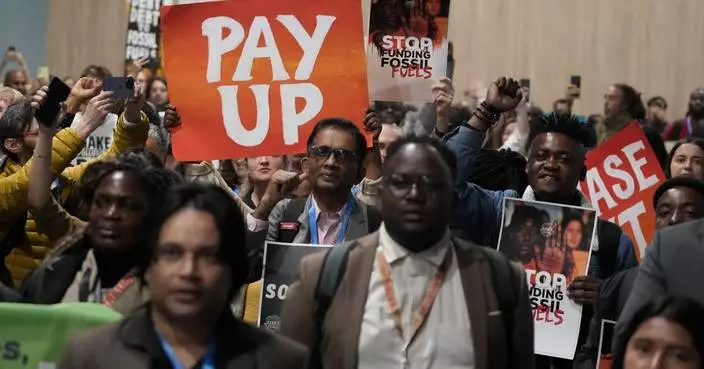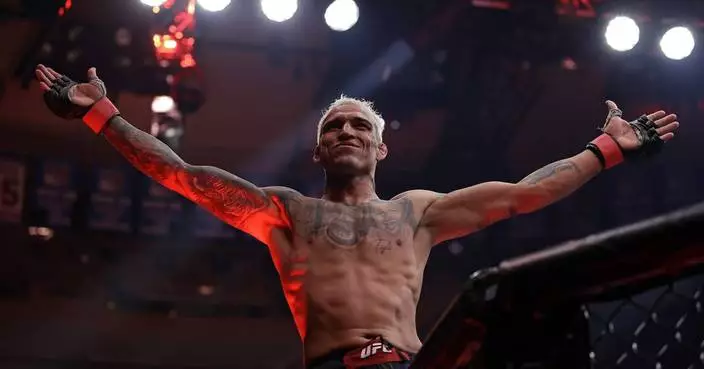SAN FRANCISCO (AP) — The U.S. antitrust watchdogs that pounced on Big Tech and deterred corporate deal making throughout President Joe Biden's administration may be kept on a shorter leash by Donald Trump after he returns to the White House next year.
Although regulators began cracking down on tech powerhouses such as Google and Facebook during Trump's first term as president, most experts expect his second administration to ease up on antitrust enforcement and be more receptive to mergers and deal-making after years of hypervigilance under Biden's watch.
One of the biggest reasons underlying the anticipated pivot stems from the widespread belief that the chief architects of the Biden administration's get-tougher stance — Lina Khan of the U.S. Federal Trade Commission and the Justice Department's Jonathan Kanter — won't be part of the Trump regime.
Both the Justice Department and FTC didn't respond to request for comment.
Trump's announcement of billionaire Elon Musk, who once anointed himself as “Technoking,” to oversee an advisory effort focused on slashing government spending could end up reducing the staffs and regulators trying to rein in deep-pocketed companies.
And Trump's nomination of combative supporter Matt Gaetz to be U.S. Attorney General has thrown even more uncertainty into the game. Gaetz has previously lashed out at social media platforms' policies he claims suppress conservative views, and has, at times, joined in on calls to break up Big Tech. He also has a track record of supporting causes trumpeted by Trump.
“There are going to be some profound changes" in antitrust policies, predicts John Kwoka, an economics professor at Northeastern University that has periodically worked on antitrust issues with the FTC and Justice Department. “Elon Musk could end up having a larger-than-life influence on policy, and that isn't something we have seen before, where a single person whispers in the ear of the President."
Other experts interviewed by The Associated Press mostly agree with Kwoka's sentiments. But they also believe it's highly unlikely the anticipated shift will result in regulators abandoning existing antitrust cases against Big Tech firms, partly because those legal showdowns coalesce with populist worries about the industry's increasing power and influence on people's lives.
“We are in uncharted territory, but the idea of going up against Big Tech still has legs to it,” said Rebecca Allensworth, a Vanderbilt University law professor who tracks antitrust issues.
But the changing of the guard may open a door for Google, Apple, Amazon and Facebook to avert prolonged court battles and negotiate settlements under a president that relishes in deal making.
“Maybe Big Tech should buy a copy of ‘The Art of The Deal’ to figure out how to best negotiate with this administration,” suggested Paul Swanson, an antitrust attorney for the law firm Holland & Hart. “I won’t be surprised if they find ways to reach some accommodations and we end up seeing more negotiated resolutions and consent decrees.”
While the fate of existing antitrust cases remains in a realm of pure speculation, almost everyone is betting the Trump administration will be more receptive to mergers that typically come with a promise of lower costs and other benefits for consumers.
The stage is set for “a golden era for deal flow among public and private tech players over the next 12 to 18 months,” Wedbush Securities analyst Dan Ives wrote in a research note after Trump's reelection.
It's a belief widely shared by most investors, which helped fuel a run up in the overall stock market since Election Day and boosted shares in companies trying to close deals announced during the Biden administration. One such example involves Capital One Financial and Discover, who aim to consummate their merger in a stock swap next year. Capital One's market value has increased by 11% while Discover's market value has climbed 16%.
The change in administration could also sway a proposed merger between the country's two biggest supermarket chains, Kroger and Albertsons, which forged a $24.6 billion deal to combine in 2022. But the FTC filed a lawsuit in federal court earlier this year to block the merger, claiming the deal would eliminate competition, leading to higher prices and lower wages for workers. But the two companies say a merger would help them lower prices and compete against bigger rivals like Walmart.
Given grocery prices remain a hot-button issue among consumers still feeling shell shocked from post-pandemic inflationary spikes, Allensworth believes the Trump administration is less likely to “abandon or soft pedal" the FTC's challenge to the Kroger-Albertsons merger.
In another case that has been cheered by hordes of consumers, the Justice Department is seeking to break up Ticketmaster and its corporate parent Live Nation in a lawsuit claiming their practices are driving up the cost of concerts and other entertainment.
Despite the grassroots support for that case, Live Nation executives are signaling they think they can preserve the current system under a Trump presidency.
“We are hopeful that we’ll see a return to the more traditional antitrust approach, where the agencies have generally tried to find ways to solve problems they see with targeted remedies that minimize government intervention in the marketplace,” Live Nation President Joe Berchtold said during a conference call with investors shortly after the election.
Deals that got torpedoed by the Biden administration could find new life with Trump in command. American and JetBlue are already considering resurrecting a partnership after an earlier proposal got torpedoed by a legal challenge by Biden's antitrust team — a decision that was recently upheld by a Boston appeals court.
“We are still taking a look at it,” American Airlines CEO Robert Isom said shortly after the election. “We will take everything that the court has fed back, and we’ll put that into consideration."
Similar conversations are likely taking place among other executives re-examining deals that seemed off-limits during the Biden administration, said Colin Kass, an antitrust attorney at the law firm Proskauer Rose,
“It's almost certain there were deals that people put the brakes on because of antitrust concerns and those will be revisited to decide whether they still make economic sense,” Kass said. “If so, they will present it to the DOJ. And if there needs to be a fix, it’s more likely to get fixed than blocked outright. So it’s worth taking a chance at getting these deals done.”
As for the efforts to dismantle Big Tech monopolies, the first case brought by the Trump administration against Google is now in the hands of a federal judge who ruled in August that the company's dominant search engine is an illegal monopoly. U.S. District Judge Amit Mehta in Washington, D.C. is now weighing what kind of punishment to impose on Google. A decision is expected by August next year.
In a preliminary proposal filed last month, the Justice Department indicated it might try to persuade Mehta to order that key parts of Google be broken up to restore competition.
The Justice Department's final draft of recommended penalties is due this Wednesday. The filing isn't likely to be influenced by the specter of the Trump administration taking over next January as Kanter and the rest of the team he assembled at Justice get one final chance to state their case against Google, said David Olson, an associate law professor for Boston College.
A reshuffled team of antitrust regulators appointed by Trump could still backtrack from whatever position is staked out in the Nov. 20 filing and take a different stance when Mehta presides over the hearings about the proposed punishments next spring.
“It is disheartening to see,” Kwoka said. “A tougher policy was in order because the tech companies in particular had been allowed to behave without any significant restraint for 20 years. And then we all recognized it was going to take more than four years to establish a tougher policy and show its merits. Now, that may not happen.”
AP Business Writer Dee-Ann Durbin and AP Business Writer Dave Koenig contributed to this story.
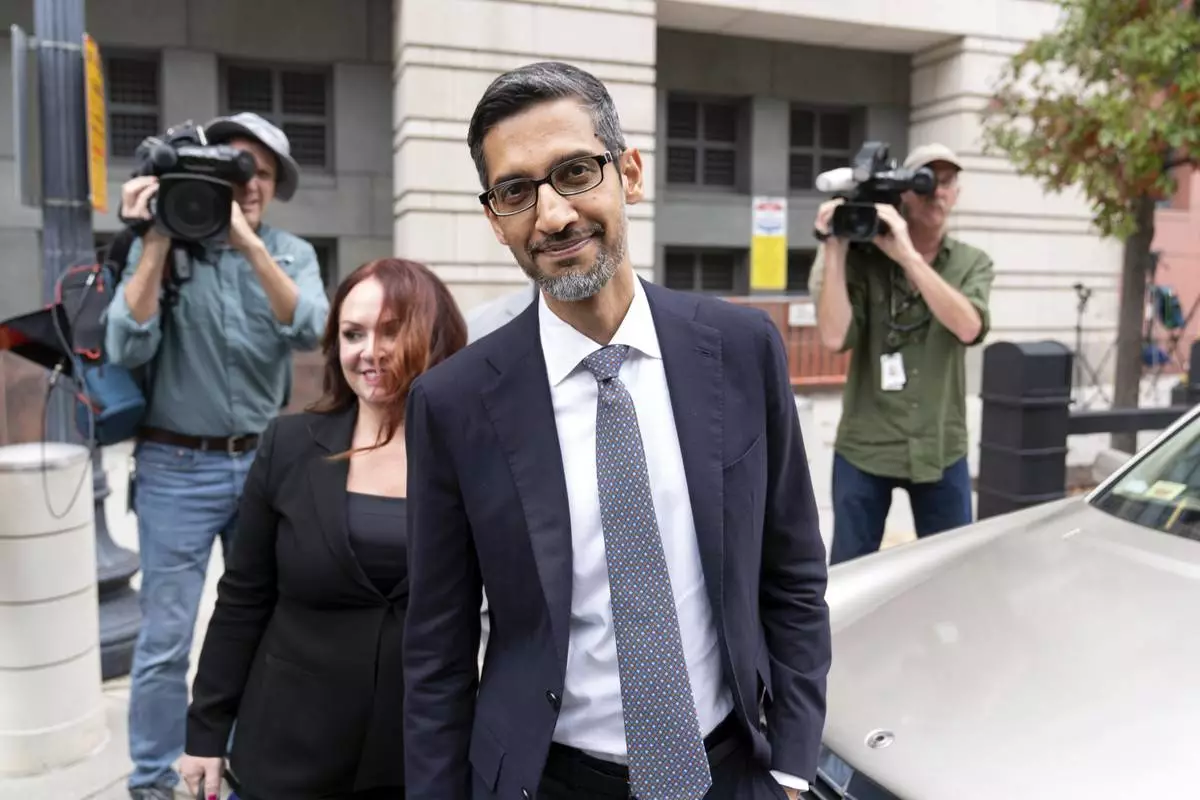
FILE - Google CEO Sundar Pichai leaves the federal courthouse in Washington, Oct. 30, 2023. (AP Photo/Jose Luis Magana, File)
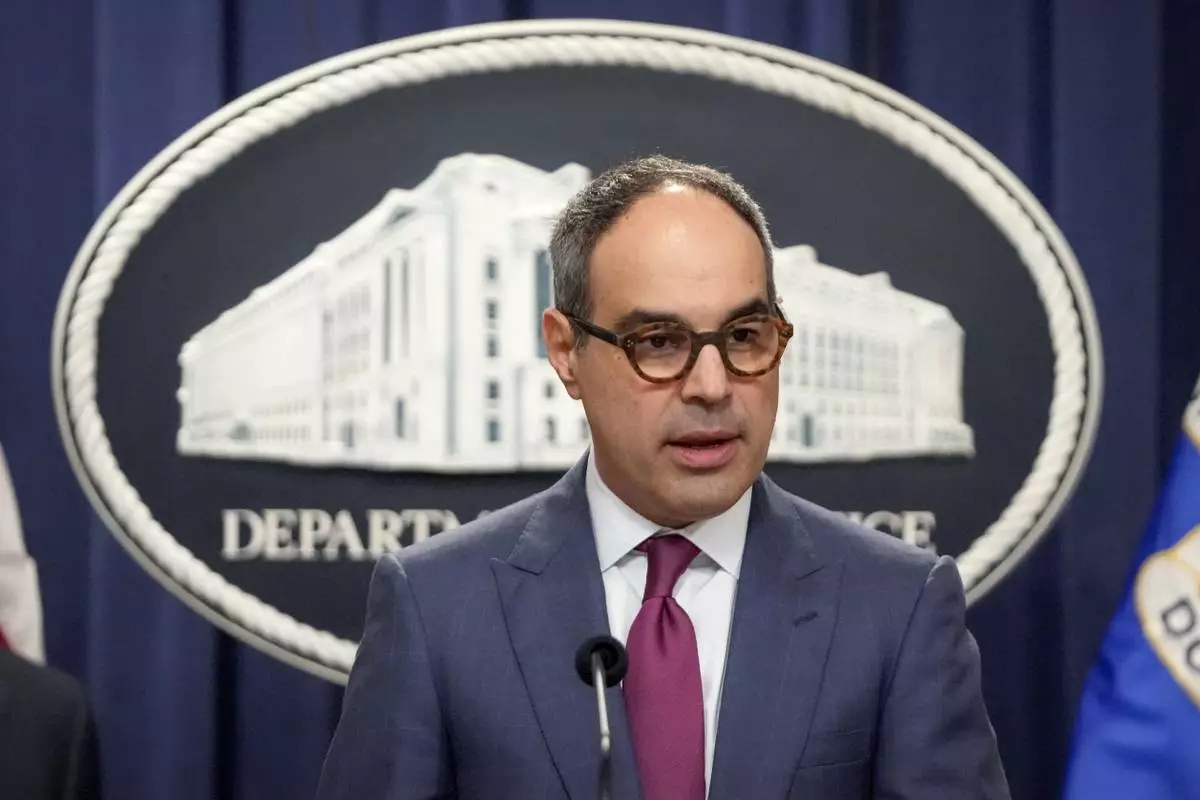
FILE - Assistant Attorney General Jonathan Kanter of the Justice Department's Antitrust Division speaks with reporters during a news conference at the Department of Justice, Aug. 23, 2024, in Washington. (AP Photo/Mark Schiefelbein, File)
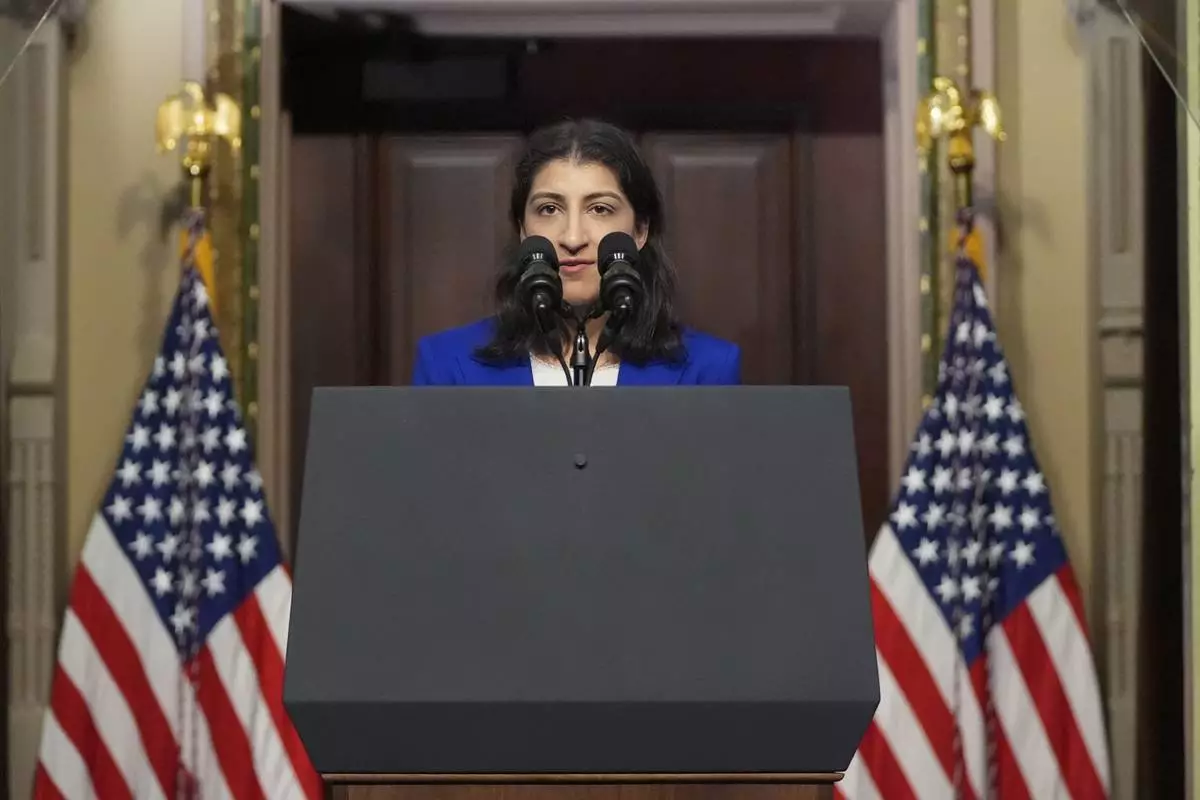
FILE - Lina Khan talks about health care costs at the Eisenhower Executive Office Building on the White House complex in Washington, April 3, 2024. (AP Photo/Mark Schiefelbein, File)


